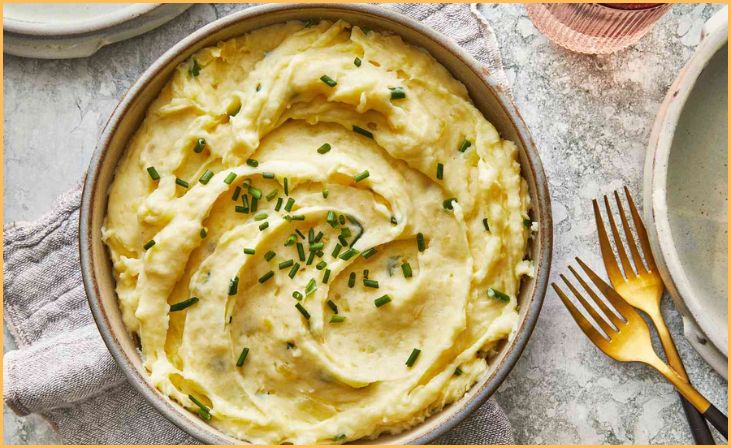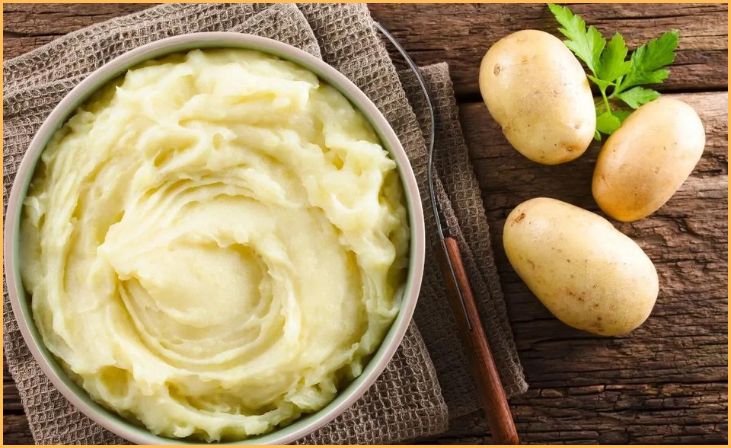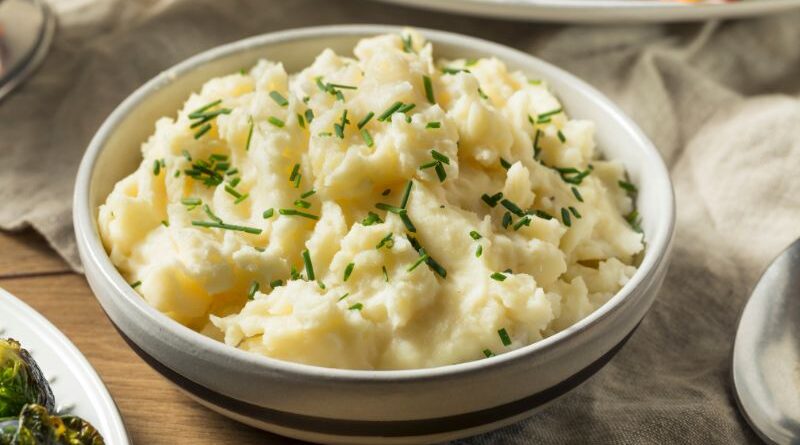Mashed potatoes, a staple side dish, are a holiday favorite. But what do you do when you have an abundance or want to prep early for Thanksgiving? The answer is yes – you can freeze mashed potatoes. Freezing them is an ideal solution for holiday prep or saving leftovers from going to waste. Discovering how to freeze mashed potatoes and later reheat them while retaining their delightful fluffiness and creaminess is a handy skill for any cook.
This method not only prevents waste but also streamlines your meal preparation. Knowing the ins and outs of freezing mashed potatoes grants you the flexibility to enjoy this classic dish whenever you desire without compromising its quality. Whether it’s a surplus from a festive gathering or a strategic move to prep in advance, freezing mashed potatoes ensures they’re readily available without sacrificing taste or texture.
By mastering the freezing process and learning the best techniques for reheating, you preserve the deliciousness of mashed potatoes, maintaining their irresistible fluffiness and creamy consistency. This knowledge allows you to savor this beloved dish whenever the craving strikes or whenever your dinner table calls for a comforting side dish.
Can you Freeze Mashed Potatoes?

When done for exceptional occasions, freezing mashed potatoes isn’t usually a problem. But what if you want to consume potatoes on a daily basis? While we all like making them, with a hectic schedule, it may not be possible to do so all of the time. So don’t be discouraged; freezing potatoes is a viable option.
They are perfectly OK for one to two months. It saves a lot of time, but you must do it right or you will be sorry.
Many individuals have had negative experiences while attempting to freeze mashed potatoes. It’s simple to freeze them, but it takes more to make leftover potatoes truly delicious.
Quick Link: Can You Eat Brown Guacamole?
How to Freeze Mashed Potatoes?

How to Freeze Mashed Potatoes- Follow the below steps:
- Allow them to cool fully before proceeding. This will assist in preserving the creamy texture.
- Divide the mashed potatoes into 1-cup parts, set the scoops on a baking sheet lined with parchment paper, then wrap in plastic wrap. Portioning the potatoes will make things easier later on since you won’t have to defrost the entire batch and then refreeze what you don’t eat. Furthermore, repeated freezing and thawing will alter the texture of the potatoes unfavorably.
- Overnight freeze the potatoes on a baking sheet.
- Transfer the now-frozen potato scoops to a big freezer-safe bag, container, or individual container the next day—label with the date and store in the freezer for up to six months.
Steps for Reheating Mashed Potatoes
Follow the following steps to reheat mashed potatoes:
- Frozen mashed potatoes can be thawed in the refrigerator overnight or reheated while still frozen. In either case, remove the mashed potatoes from the plastic wrap and foil and place them back in the original casserole dish. Cover and store in the fridge if thawing overnight.
- If your mashed potatoes have been frozen, continue the baking instructions in the recipe exactly as given. If baking from frozen, increase the warming time by 15 to 20 minutes. While baking, you may wish to stir the mashed potatoes once or twice to ensure equal heating.
- If the frozen mashed potatoes become too liquid when cooked, add extra butter or cream cheese.
Can Frozen Mashed Potatoes Go Bad?

Frozen mashed potatoes, while they benefit from freezing as a preservation method, aren’t immune to deterioration over time. Although freezing initially helps maintain their quality, prolonged storage or improper sealing can result in a decline. Extended periods in the freezer can cause freezer burn, altering the taste and texture of the mashed potatoes.
Freezer burn occurs when food is exposed to air within the freezer, causing moisture loss and oxidation. This process can lead to changes in flavor and texture, resulting in a less appetizing product. Proper storage techniques, including sealing mashed potatoes in airtight containers or freezer bags to limit air exposure, are vital to prevent this deterioration.
Maintaining mashed potatoes in the freezer for an excessive duration can compromise their quality. The longer they remain frozen, the higher the likelihood of experiencing changes in taste and texture, diminishing their overall appeal.
Conclusion
Freezing mashed potatoes offers a practical solution for storing them to use at a later time, but it’s essential to note that their texture might undergo slight alterations during the freezing and thawing process. Despite this potential change, when appropriately stored, mashed potatoes retain their flavor and overall quality, presenting a versatile and convenient make-ahead option for diverse culinary creations.
The freezing process can affect the consistency of mashed potatoes, often leading to a minor shift in texture. Upon thawing, the potatoes might exhibit a slightly grainier or looser texture compared to their freshly made counterparts. However, while the texture might differ, the inherent taste and flavor of the mashed potatoes typically remain consistent.
Proper storage methods play a crucial role in preserving the quality of frozen mashed potatoes. Allowing the mashed potatoes to cool completely before transferring them to airtight containers or freezer-friendly bags is essential. Removing excess air from the containers helps prevent freezer burn and maintains the integrity of the potatoes during freezing.
FAQs
Yes, mashed potatoes can be frozen. However, the texture might slightly alter upon thawing, becoming a bit grainy or watery, though the flavor usually remains intact.
Allow the mashed potatoes to cool completely, then transfer them to airtight containers or freezer bags, removing as much air as possible to prevent freezer burn.
Thaw mashed potatoes in the refrigerator overnight for the best results. Reheat them gently on the stovetop or in the microwave, adding a splash of milk or butter to improve texture if needed.
Mashed potatoes can typically be frozen for up to 2 to 3 months. Beyond that, their quality might decline, affecting taste and texture upon thawing.
Generally, mashed potatoes made with higher-starch varieties tend to freeze better. Adding a bit of cream or butter before freezing can also help maintain texture after thawing.







